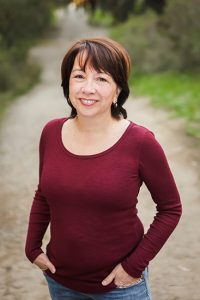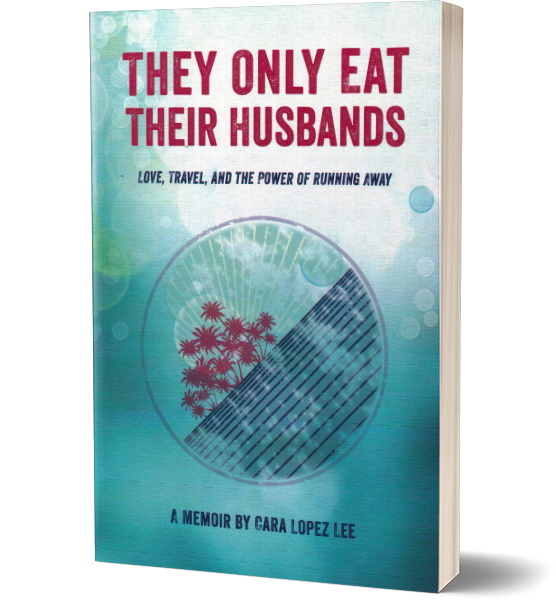“You hear that?” I asked. “Stop and listen.” Diane and I stood quiet, catching our breath, heart rates slowing.
“No, all I hear is Esther coming, crunching the snow.” We were walking single file on one of our frozen tire tracks. Esther was about half a minute back. We turned and watched her catch up with her ghostly moon shadow hooked to her feet, spreading across the narrow, snow-covered road.
“Esther, stop and listen. I think I hear something.”

A slow steady thud of a diesel generator greeted our ears, but where? (photo ©Stephan Pietzko|Dreamstime.com)
She stopped her march and stood. I looked at her and wondered what had brought her here to Alaska. She must have a curious life story to weave her fate with ours, near-strangers. How did a one-hundred-pound, sixty-year-old city-woman end up here with us trying to walk out of an Alaskan winter night? Whatever her story, she was game and her survival instinct strong.
“I hear something,” Diane said. “Is it coming from the other side of the valley?”
Then we all heard it and smiled. We had walked out of the forest’s cathedral doors and into the human world. It looked the same, but there was human-made sound and it gave us hope. A slow steady thud of a diesel generator greeted our ears, but where? We needed it to be along the road and not unreachable along the valley floor.
We walked on, not sure what hope looked like anymore. Was hope a traveled valley trail to the other side? Or was it a cabin along this un-roamed road? I wished we had talked less as we’d taken John up this road. I didn’t remember what we’d passed so many hours ago.
At every curve, we would feel the excitement. Our pace would pick up, and then…disappointment as another length of moon-drenched road lay ahead. The sound of the generator was still muffled when we rounded the last turn and the road widened. In the distance was a light. It was almost ten p.m., and someone was still up! Please don’t let them shut the generator off and go to bed, I prayed. It was a half-mile away.
One hundred yards away I started to yell “Hello!” to the house. The dog was now barking and a man came out to investigate. One more “Hello!” and he saw us and stood bewildered. There was nothing in the direction we were coming from except the Yukon River, 100 miles away. With Esther bringing up the rear, we stepped onto his porch, an unlikely threesome, hardly threatening. A judgment was made and he invited us in.
The cabin was furnished sparsely, with a nervous and surprised wife and her baby sitting in the middle. She stood up defensively from the old stuffed chair and asked us where’d we come from and what did we want so late this night.
“We took a friend up the highway to a cabin and got stuck,” Diane answered. Both Diane and I had already begun to have doubts about John’s motives.
The woman released a long-held breath, and she just said, “Oh.”
The man was listening hard, deciding about us. I was just glad the questioning was done so quickly, thinking that Alaskans sure are accepting out here. At the woman’s invitation and Diane’s smile, Diane and Esther peeled off their coats. They crowded up to the wood stove, instant old friends with the wife, chatting away. But I hung back.
As I prepared to take off my parka, I thought, what’s the protocol for exposing a concealed weapon in a stranger’s house? Diane and I had agreed to bring the gun “just in case.” We really hadn’t trusted John: drive to the end of an unplowed road, as far as you can, at night? It just hadn’t added up. But the man in the cabin had let his guard down and let us in and I didn’t want him to regret it. We needed a friend.
I casually reached under my down parka and kept up a friendly chatter, but he wasn’t listening now. Everyone fell silent as I unbuckled my revolver. I knew the man was wondering if he had been too quick to trust. But then I casually threw the gun on the chair. The tension was broken, an unspoken code was now honored, and we were equal again.
We chatted on about trucks and generators. He told me they had just arrived last week and were going to start up a business: groceries, repair work, towing. At the word towing my ears perked up. I was his first real customer and he would pull the Pontiac out and back to his house. What a deal! For thirty-five dollars, I bought our ordeal to an end. Our fate was re-cast, and an hour later we were on the road again headed for home.
That was how we lost John. Two weeks later he was late coming back and needed to be found.
The rescue effort didn’t involve hundreds of searchers, dogs, or planes. It was 1971, old Alaska before the oil pipeline, and the state was broke. Diane pounded on doors, went to the Alaska State Troopers, Fish and Game, anybody who would listen. The answer was the same: “You go in, you get yourself out. We don’t have the money.” It came down to the cold realization that John’s life wasn’t worth the three-thousand dollars it would cost for a helicopter for half a day.
The question became: how far do you go to help a stranger you only knew for ten days? Where is the stopping point? I had a day off and a friend with a truck who would go with me. I shoehorned John’s rescue into my work schedule. His life was now worth just eight dollars an hour, the hourly wage that I couldn’t afford to give up on a workday.
My friend Mike and I drove up the Steese Highway. Along the way we passed only one vehicle: a State Trooper SUV. We slowed down to look inside as it passed, hoping to see John inside. No luck. Two people. Both wore uniforms.
Milepost 44 was where the pavement ended and the plowing stopped. Now Mike realized how desolate this place was. Not a house for twenty-two miles and only one lone beacon of safety a few hundred feet ahead: the cabin that had saved Diane, Esther, and me two weeks before.
“They didn’t last long.” I don’t know who spoke that thought as we slowly cruised by the now-empty cabin, but I know we both thought it. The short driveway was barred with yellow crime scene tape, and a notice was tacked to the door. The warm wood stove that had thawed our bodies two weeks earlier was now cold as the outside air.
Mike and I had twenty-two hard miles to drive.
We followed John’s tracks as they wandered along the road. They disappeared, then reappeared. We assumed he’d camped off the road, but we never got out of the truck to inspect. I guess that’s the kind of rescue you get from two scared kids on their only day off in a borrowed pickup truck.
We pushed our way through unplowed road to milepost 66. The trail to the frozen gold-bearing creek started here, and we spied his tracks again. We followed John’s tracks until they wandered off the trace again. Before us stood his destination, a feast of tasty willows. Hope had ruled our interpretation, but we always suspected, and now we knew: we were following moose tracks, not John’s. We were defeated, the rescue a bust. We had probably never seen John’s tracks. It was just our hope we saw in the dimpled snow that winter’s day.
Alaska holds its secrets well, be it frozen gold under layers of snow, or lives reborn and pasts forgotten. When you cross the border a new life awaits and it’s up to you which path to take. We learned later that my new cabin friend had been arrested for murder a few days after he’d helped us out, when the real owner of the cabin was found stuffed in the generator shed. Maybe that was why the conversation had stopped when I’d unbuckled my gun.
As for John, the gods picked him to become an Alaskan secret. He stayed lost that winter, never to be seen or heard from again.
***
 Ron Shale was born in Ohio in 1948. In 1971, he graduated from Bowling Green State University, where he met his wife, Diane. When they graduated, they drove an old Pontiac to Alaska, where they lived in tents, built log cabins, and adopted two girls. Ron is a retired power lineman. Diane wrote Alaska’s first preschool correspondence course. They now live in Englewood, Colorado.
Ron Shale was born in Ohio in 1948. In 1971, he graduated from Bowling Green State University, where he met his wife, Diane. When they graduated, they drove an old Pontiac to Alaska, where they lived in tents, built log cabins, and adopted two girls. Ron is a retired power lineman. Diane wrote Alaska’s first preschool correspondence course. They now live in Englewood, Colorado.




